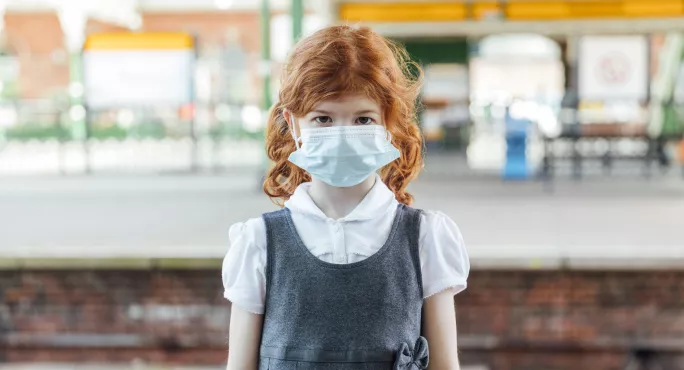Protecting pupils’ mental health in Covid - and beyond

The coronavirus pandemic has had, and continues to have, a significant impact on the mental health of children and young people in Scotland, and indeed across the UK.
Place2Be’s school-based staff estimate that 85 per cent of the young people we support have been negatively affected by the pandemic (see the first source below).
Recently, we’ve seen further evidence from the NSPCC that makes for challenging reading, given that its report highlights an increase in calls to the Childline service after coronavirus restrictions came into force and schools closed to most pupils.
Mental health: ‘Covid won’t stop counselling in every secondary school’
Equity audit: Pupils in P1 and S1 ‘among the worst hit by Covid lockdown’
Coronavirus: School ‘will be a strange place for returning children’
Personal and social education: PSE must be ‘vastly improved’
I feel strongly that we must continue to shine a light on the link between poverty and poor mental health - almost one in four (230,000) of Scotland’s children are now officially recognised as living in poverty. The evidence shows us that children living in poverty are at greater risk of poor mental health, so when we take into account the longer-term economic impact of the pandemic, we are likely to see further need for mental health support, even once the immediate danger of catching the virus has subsided.
Supporting children’s mental health
Given this impact, it’s vital that schools are able to focus on supporting the mental health of all pupils, as well as providing targeted support for those with the greatest need. We’re pleased to see the increasing understanding about whole-school mental health strategies.
When schools work with Place2Be, children have the opportunity to book their own one-off appointments with our mental health professionals to talk about whatever is on their minds. Not only does this encourage a culture of emotional awareness, but it also means that asking for help and talking about your feelings is de-stigmatised - from P1 onwards. It also provides an opportunity for more serious problems to come to light, which school staff may not have been aware of.
As I talk to the schools we work with, I can see that many are using creative approaches to promote positive mental health for the whole school, whether that’s through forest schools and outdoor learning, wellbeing-focused lessons, worry boxes, tranquillity gardens or peer mentoring schemes.
To reach the widest possible audience, Place2Be has also created free resources for families and schools as part of our Children’s Mental Health Week campaign (1-7 February), celebrating the wellbeing benefits of creative self-expression. All of the ideas are adaptable for home schooling and online learning.
Staff wellbeing
We know that difficult and distressing circumstances for children and young people can often translate into challenging behaviour inside the classroom. We know this behaviour is a means of pupils communicating their distress, but, nonetheless, it can be draining for teachers to cope with, particularly when, as many teachers have told us, they have received little to no training on child mental health. School staff play an important role in promoting good mental health for children and young people, as well as spotting when a child might be struggling, but it’s vital not to forget their own wellbeing and self-care.
To build teachers knowledge and understanding, Place2Be has made its Mental Health Champions - Foundation programme available for free to up to 5,000 teachers across Scotland this school year. In addition, to support school staff wellbeing, Education Scotland and the General Teaching Council for Scotland (GTCS) have provided funding for school leaders and teachers to access free small group sessions on wellbeing, delivered online by an experienced Place2Be clinician.
We know that schools and teachers cannot do this alone. They need to be backed up by well-resourced child and adolescent mental health services (Camhs), social care and other specialist mental health professionals.
But by ensuring that teachers and school staff are confident and equipped to deal with the challenges they face in the classroom, we can go a long way towards countering some of the negative and most harmful effects of this pandemic.
Jacqueline Cassidy is Scotland director of the Place2Be charity
Sources:
- Survey of 88 Place2Be school-based staff, reflecting on the experiences of 857 young people. August 2020.
- Child Poverty Action Group in Scotland, 2020
- Audit Scotland 2020
Register with Tes and you can read two free articles every month plus you'll have access to our range of award-winning newsletters.
Keep reading with our special offer!
You’ve reached your limit of free articles this month.
- Unlimited access to all Tes magazine content
- Save your favourite articles and gift them to your colleagues
- Exclusive subscriber-only stories
- Over 200,000 archived articles
- Unlimited access to all Tes magazine content
- Save your favourite articles and gift them to your colleagues
- Exclusive subscriber-only stories
- Over 200,000 archived articles